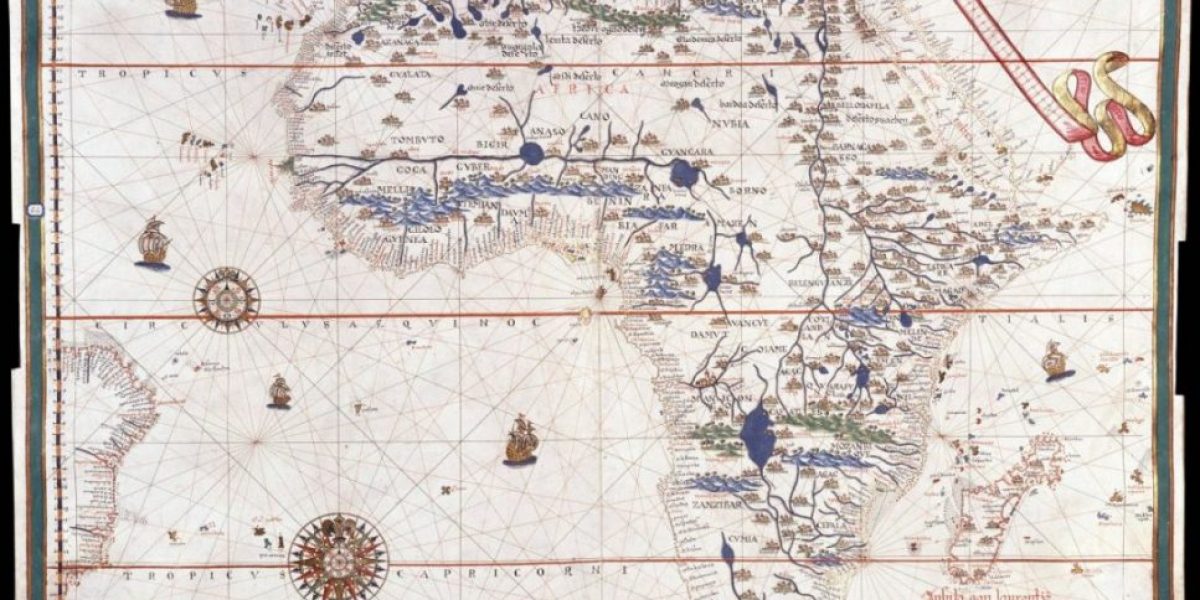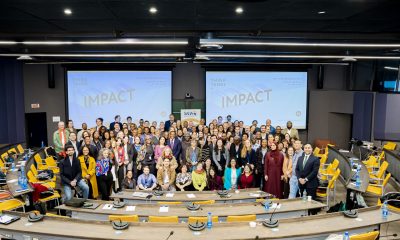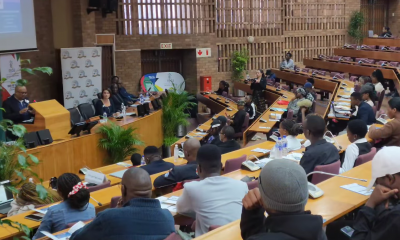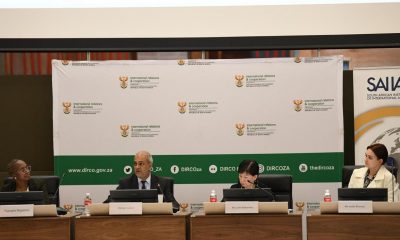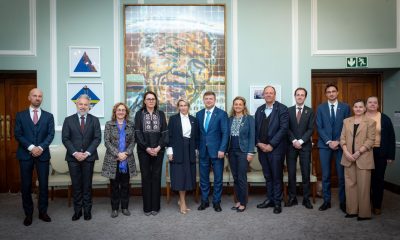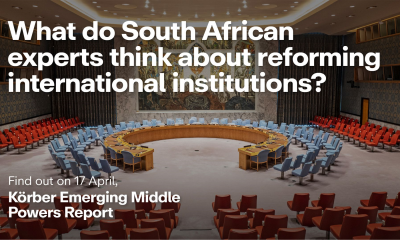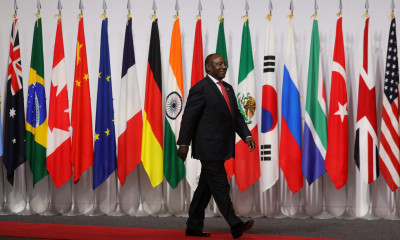While the outcome of the political wave of popular protest in North Africa remains uncertain, what is clear is that people blocked from having political voice and unable to express their wills and preferences in free, fair and regular elections, have demonstrated their anger, frustration and rejection of unelected and illegitimate political leadership through brave and principled actions.
Critical to the conduct of each of these uprisings has been the role played by the military and media, particularly the social media. In Tunisia and Egypt, the security forces remained largely neutral in the civil military dynamic and without this relative neutrality, the ousting of Ben Ali and Hosni Mubarak would have been unlikely.
The second critical factor has been the liberating (others would argue incendiary) role of the media. In this regard the internet and cellular technology may have become the most politically revolutionary inventions of the 20th century, albeit with their political impact felt most fully in the early part of the 21st.
The North African uprisings remind us too of the need for and value of home grown, yet international, think tanks specialising in Africa, such as SAIIA. Our researchers and commentators have been constantly at the forefront of analysis and commentary that has helped our country and indeed the region to better understand the events that are unfolding so rapidly across our screens. This is not to imply that crises are good for SAIIA, but rather that it is good to have SAIIA around to talk to when there is one!
SAIIA is not in the business of futurology, but has, over the past decade developed a degree of skill in scenario building which has been utilised by the government, business, the diplomatic community and development agencies in the region. Indeed, to remain relevant and to ensure our research, events and public engagement are cutting edge and value-adding, it behoves us to consider over the horizon thinking, so I shall now sketch out a number of the key events that we should remain alert to.
Already a breathtakingly eventful year, 2011 promises to be one of major significance for Africa. The post-election impasse in Cote d’Ivoire remains a test of will for democracy in that country, but equally, represents a significant test case for the Economic Community of West Africa (ECOWAS), the African Union and the broader international community. The outcome and manner in which the disputed election is resolved will send signals to others contesting elections this year and the next on the African continent.
If conducted in a manner that is free, fair and legitimate, the outcome of any election has to be accepted by all parties, winner and losers. Too often in Africa, election losers and in particular incumbents are rewarded with forced, artificial or compromise power-sharing agreements. Such African solutions often lead to and encourage more and deeper African problems. Forced power-sharing agreements are undemocratic in their nature and ultimately unsustainable. I stress, where the electoral process is verifiably free, fair and legitimate, the outcome has to be accepted by all parties. There is no viable alternative African variant!
I emphasise this point given the key elections to be conducted on the continent this year, from those to be held in Nigeria in April, to those promised in Egypt by September. Both Egypt and Nigeria are pivotal African states whose size and influence make them litmus tests for democratic transition and consolidation respectively on our continent. Closer to home, Zambia will hold elections later this year and some within our troubled neighbour Zimbabwe are preparing for elections within the next twelve months.
In November this year South Africa will host an event without the pomp and ceremony of the soccer world cup last year, but one that is infinitely more important to the future of our planet – the 17th UN Conference of the Parties on Climate Change. Time is running out for a post-Kyoto deal that will be acceptable to and binding on all parties, yet to fail to reach agreement will condemn future generations to the consequences of our own irresponsibility, profligacy and recklessness. This makes South Africa’s task all the more onerous. Not only will we be evaluated on our performance as a global conference host, but also with respect to the particular role we will play in forging acceptable and binding positions at the CoP17. South Africa’s task is not made easier by its own somewhat ambiguous and paradoxical need for energy security, balanced by its increasingly progressive rhetoric on climate change, mitigation and adaptation. In many respects, South Africa is emblematic of the global ambivalence experienced by developing countries and emerging powers between balancing the short-term imperative of energy security and economic growth with the longer-term consequences of global warming.
In January this year South Africa assumed its second term as a non-permanent member of the United Nations Security Council. Some would view this as a second chance. The government’s stated view of our first term as UNSC members was one of great success, but one in which our positions on controversial matters were misunderstood, or not communicated optimally. We have now had two years to finesse our communication skills and indeed to hone our diplomacy in preparation for a second sitting at the top table. To date, the results are promising. South Africa has spoken crisply and clearly on events in North Africa. Our aim should be to take positions that are constructive, progressive and diplomatically defendable. We wish our diplomats success in their responsibilities during the remainder of their term.
South Africa’s re-election to the UN Security Council and its invitation to join the BRIC is evidence of an active and engaged international diplomacy. Over the years SAIIA has developed outstanding relations with DIRCO and is happy and willing to contribute to the department’s efforts to have an active voice on these themes.
South Africa’s acceptance as a member of the BRICS cements its position as a leading voice among developing nations. While the country’s recognition and higher profile is to be welcomed and has already contributed to its improved perception rating internationally, the true challenge of BRICS membership is still to be met: How do we maximise the potential commercial, financial and strategic benefit of membership? What innovative global policy issues will we bring to the table both in the BRICS and at the G20?
As we review our international relations policy through the white paper process it is time for an honest and sober assessment of how to align South Africa’s interests with its active membership of various plurilateral groupings. This is not to deny or question their value, but rather to suggest that we assiduously examine and prioritise our engagements to advance the welfare of our people.
After all, there is no denying that South Africa is confronted with deep structural and to date, intractable domestic challenges, not least of which are unacceptable levels of poverty, inequality and unemployment. Thus, there is a particular and pressing need for our international engagement to deliver domestic benefits, not just to our polity, but to our people at the grass roots.
While we welcome recent efforts at forging greater co-operation and integration between SADC, COMESA and the East African Community as a way to ease the conduct of doing business in SADC, policy makers also cannot afford to lose sight of our big trading partners in Europe, the US and Japan and the opportunities for creating more jobs through trade and investment agreements. We hope that recent business-government engagements will rise to the occasion.
Lastly, it is a source of enormous pride to announce that for the second year in succession in 2010 SAIIA was independently rated as the top think tank in sub-Saharan Africa. We appreciate this accolade not in competitive terms, but rather because the Institute has been recognised by its peers. This achievement bears testimony to the quality of SAIIA’s leadership, the dedication of its staff and professionalism of its researchers, particularly under tight funding circumstances.
I thank you all.
— SAIIA National Council Chairperson Fred Phaswana, 23 March 2011

